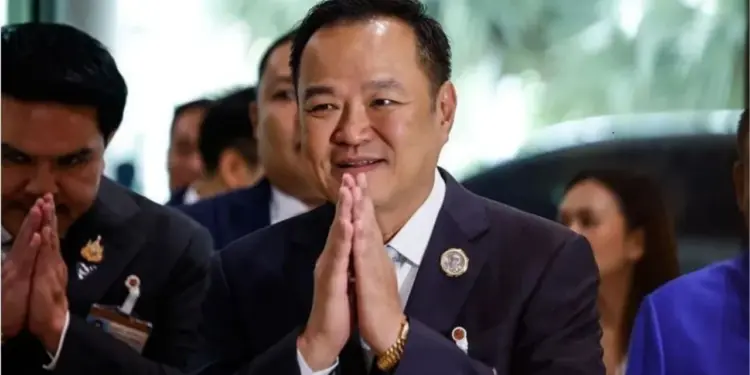Anutin Charnvirakul has been elected by Thailand’s House of Representatives as the country’s 32nd prime minister, marking a new chapter in Thai politics after a turbulent few weeks. His victory follows a Constitutional Court decision that forced the previous premier to step down and a parliamentary session that debated nominations under Section 159 of the Constitution.
Anutin Charnvirakul Elected as Thailand’s 32nd PM
Anutin Charnvirakul, leader of the Bhumjaithai Party, secured the premiership in a vote of the House of Representatives, edging out his rival and gaining the right to lead a new government. The outcome reflects the bargaining and coalition-building that have become routine in Thailand’s multiparty parliamentary landscape, and it places a familiar political figure back at the center of national policymaking.
A longtime politician with deep party ties, Anutin now faces the task of translating coalition promises into action while managing the expectations of partners and opponents alike. His government is being formed as a minority administration under a formal memorandum of understanding, a setup that will test his ability to maintain support across a fragmented legislature.
Parliament Votes After Court Removes Paetongtarn Shinawatra
The parliamentary vote came after the Constitutional Court ruled that Paetongtarn Shinawatra must step down as prime minister, prompting the House to conduct debates and nominations under Section 159 of the Constitution. That provision governed the process by which candidates were put forward and scrutinized before MPs moved to the formal ballot for a new premier.
Candidates required the backing of at least 247 of the 492 MPs in the House to secure a majority and be elected. Parliament proceeded with the nomination and voting process amid heightened attention, as parties weighed their strategic options in response to the court’s decision and shifting allegiances in the chamber.
Coalition Backing Secures Win Over Chaikasem Nitisiri
Anutin’s victory came against the candidacy of Chaikasem Nitisiri, who was endorsed by the Chartthaipattana Party (CTP). The CTP had convened at its parliamentary office under party leader Varawut Silpa-archa and resolved to back Chaikasem, who campaigned on a platform that included an immediate dissolution of the House if elected — a promise intended to reset the political contest quickly.
Despite that pledge and the CTP’s coordinated effort, Chaikasem was unable to attract sufficient support to overcome Anutin’s broader coalition. Anutin’s coalition partners and allied MPs ultimately delivered the votes needed for him to prevail, highlighting the pragmatic alliances that carried the day in this closely watched contest.
New Minority Government Pledges MOU and 11-Point Agenda
Anutin will lead a minority government formed under a five-point memorandum of understanding (MOU) agreed with key partners, including the People’s Party (PP). The MOU commits the new administration to dissolving Parliament within four months, initiating work on a new constitution through an elected drafting assembly, and ensuring that the PP remains in opposition, among other provisions, according to reporting by Bangkok Post and ฐานเศรษฐกิจ.
Alongside the MOU, Anutin has presented an 11-point policy agenda that aims to address economic recovery and social services. The programme includes a 50,000 baht emergency loan scheme to support households and businesses, expansion of electric transport infrastructure, the establishment of free dialysis centres in every district, and an ambitious tourism target of attracting 80 million visitors to generate 6 trillion baht by 2027. Delivering on these promises will be a central test of the new government’s credibility and capacity.
Anutin’s ascent to the premiership brings a seasoned political operator back to Thailand’s top office at a moment of institutional recalibration and economic ambition. With a minority government bound by a detailed MOU and a bold policy agenda, his early months in office will be critical for building trust, securing parliamentary stability, and turning campaign commitments into tangible results.



















